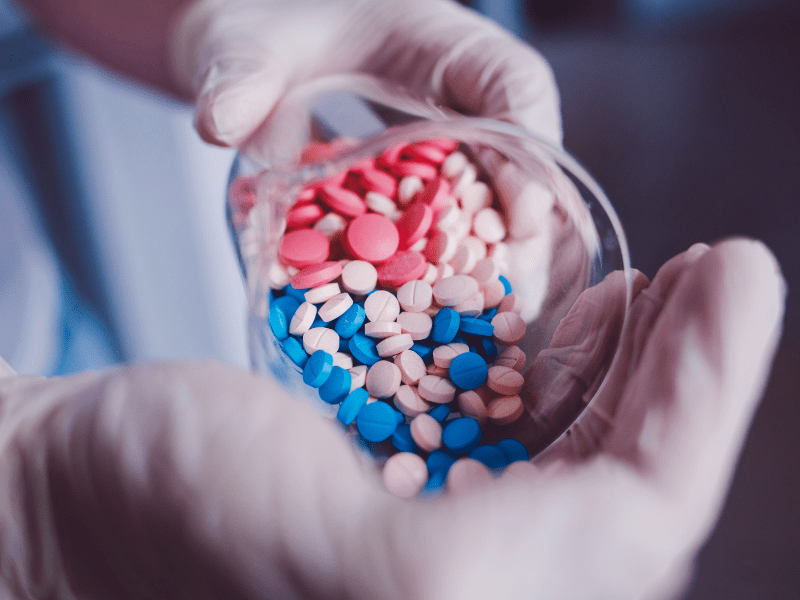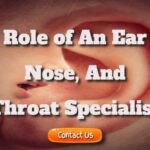Biohacking and Nootropics
Nootropics, sometimes known as “smart pills,” are a kind of supplement or pharmaceutical intended to boost cognitive performance. Memory, creativity, attention, motivation, and energy are such abilities. Nootropics function by raising the levels of particular neurotransmitters in the brain or shielding it from harm. Nootropics may also aid in protecting the brain against aging and illness.
However, it is also necessary to be aware of the possible hazards of using nootropics. Some nootropics might interact with other drugs, while others can have negative side effects. Choosing the best nootropic for your specific requirements is also critical since not all nootropics will work for everyone.
Getting started with nootropics
There are a few things you should bear in mind if you want to take nootropics. First and foremost, while selecting a nootropic, it is critical to research and choose one that is appropriate for you. Make certain that the nootropic you chose has been proven safe and effective, especially via peer-reviewed research on people rather than animals. Reddit’s Nootropics forum is a wonderful place to start your study (1). Before you take the jump, you may ask questions and learn about other people’s experiences on this site.
Consider the price. Nootropics do not provide results overnight. This is a long-term approach with compounding rewards. Before purchasing, consider how much you can spend, keeping in mind that this is an investment in your health. Consider the dependability of the nootropics you purchase. Cheaper nootropics may be less effective, unproven, and even dangerous. You get what you pay for, as with everything else.
Check the dosage and adhere to it. Taking more does not always boost or speed up the benefit. If used in excess, several nootropics might be harmful.
What do nootropics do?
Nootropics are mostly used to improve brain health and function. They may boost memory, attention, and cognition (2), mood, stress levels (3), and mindset, as well as protect the brain from the ravages of dementia and aging (4).
The vast majority of nootropics are synthetic versions of substances found naturally in the brain or body. There are several compounds classified as nootropics (5). Caffeine, which may increase alertness and attention (6), CBD, omega 3 fatty acids, which are needed for optimal brain development, promote cognitive performance (7) and protect against age-related decline (8), and B vitamins are among them (9). Vitamin B6, in particular, is required for the production of serotonin, a neurotransmitter that influences mood and emotion (10). B vitamins may be obtained as a supplement. Chickpeas, beef liver, tuna, salmon, chicken, and fortified breakfast cereals are also high in vitamin B6 (10). Sardines, herring, mackerel, and salmon are the finest sources of omega-3 fatty acids. However, since many individuals dislike seafood, a fish oil supplement may provide the same advantages.
Some nootropics come from plants, herbs, or fungus. Valerian, Ashwaganda (11), Rosemary, turmeric (12), and ginseng are among them. Ginkgo biloba, for example, has been demonstrated in tests to assist boost memory and delaying the development of dementia (13). Each of these drugs has been proved to increase cognition in some manner. These food-based nootropics may increase cognitive performance by giving the brain the nutrition it needs to operate efficiently. For biohacking newcomers, food-based nootropics are a fantastic place to start.
While there is some evidence that nootropics may increase cognitive ability, the benefits are often weak and imperceptible. However, not all nootropics are made equal; some are much more effective than others.
Piracetam: The Original Smart Drug
Piracetam is a substance that has been used to boost cognitive performance for decades. Unlike many other supplements, piracetam has been carefully researched in clinical studies and shown to be useful in treating a wide range of problems. Piracetam, for example, has been found to enhance memory and learning in both healthy persons and those with Alzheimer’s disease and dementia. It has also been shown to be useful in the treatment of attention deficit hyperactivity disorder (ADHD). Piracetam has been found to protect the brain against damage caused by strokes and other injuries, in addition to its cognitive-enhancing benefits (14).
Pramiracetam: A More Powerful Piracetam
Pramiracetam is a strong nootropic that is connected to piracetam. Both medications are members of the racetam family and have numerous similarities. Pramiracetam, on the other hand, is substantially more powerful than piracetam and has a few extra advantages. Pramiracetam, like other racetams, is hypothesized to improve cognitive performance by boosting levels of the neurotransmitter acetylcholine (15). Because acetylcholine is required for memory and learning (16), this increase in function may aid in these cognitive functions. Pramiracetam is also thought to boost brain health and function by increasing blood flow to the brain (17).
Which nootropics are best for focus and concentration?
A number of supplements claim to boost focus and concentration. However, with so many alternatives available, it may be difficult to determine which ones are really beneficial. Here are four of the most effective:
Caffeine is a potent stimulant that may aid with attention and concentration. It acts by inhibiting the neurotransmitter adenosine, which induces sleep. According to research, it may also aid to boost memory and cognitive performance (6).
L-theanine: Found in green tea, this amino acid is recognized for its relaxing properties. It may assist to lessen anxiety and concentration (18).
Bacopa monnieri: For ages, this Indian herb has been used to increase long and short-term memory, cognitive function, and learning. It increases blood flow to the brain and aids in the creation of neurotransmitters like acetylcholine, serotonin, and GABA (19).
Citicoline: This natural supplement has been proved to aid memory and learning. It has neuroprotective properties and may aid in the protection of the brain from harm. Citicoline is a drug that is both safe and well tolerated (20).
It is difficult to cover all of the nootropics accessible in one post, therefore I highly advise you to do further study on the issue. It is important to note that, although there is evidence to support the usage of nootropics, they are not miracle pills. They will not instantly make you smarter or more creative. They are, rather, tools that may be employed to assist you in reaching your cognitive potential. Nootropics, when utilized correctly, maybe a beneficial addition to your biohacking toolset.
References
- https://www.reddit.com/r/Nootropics/
- A traditional approach to herbal nootropic agents. An overview https://citeseerx.ist.psu.edu/viewdoc/download?doi=10.1.1.278.4847&rep=rep1&type=pdf
- An Acute, Double-Blind, Placebo-Controlled Cross-over Study of 320 mg and 640 mg Doses of Bacopa monnieri (CDRI08) on Multitasking Stress Reactivity and Mood https://bit.ly/3jmJd9r
- The Effects of Anti-Dementia and Nootropic Treatments on the Mortality of Patients with Dementia: A Population-Based Cohort Study in Taiwan https://www.ncbi.nlm.nih.gov/pmc/articles/PMC4476616/
- List of Nootropics – 85 Brain-Boosters, 11 Best-in-Class, 1 Universal Stack https://www.mindlabpro.com/blogs/nootropics/list-nootropics/
- The impact of caffeine on mood, cognitive function, performance and hydration: a review of benefits and risks https://onlinelibrary.wiley.com/doi/abs/10.1111/j.1467-3010.2007.00665.x
- Effects of ω-3 fatty acids on cognitive performance: a meta-analysis https://pubmed.ncbi.nlm.nih.gov/22305186/
- Beneficial effects of docosahexaenoic acid on cognition in age-related cognitive decline https://pubmed.ncbi.nlm.nih.gov/20434961/
- B Vitamins and the Brain: Mechanisms, Dose and Efficacy—A Review https://www.ncbi.nlm.nih.gov/pmc/articles/PMC4772032/
- Vitamin B6 https://ods.od.nih.gov/factsheets/VitaminB6-HealthProfessional/
- A Prospective, Randomized Double-Blind, Placebo-Controlled Study of Safety and Efficacy of a High-Concentration Full-Spectrum Extract of Ashwagandha Root in Reducing Stress and Anxiety in Adults https://journals.sagepub.com/doi/10.4103/0253-7176.106022
- Investigation of the effects of solid lipid curcumin on cognition and mood in a healthy older population https://journals.sagepub.com/doi/10.1177/0269881114552744
- A Placebo-Controlled, Double-blind, Randomized Trial of an Extract of Ginkgo Biloba for Dementia http://citeseerx.ist.psu.edu/viewdoc/download?doi=10.1.1.325.6920&rep=rep1&type=pdf
- Piracetam: A Review of Pharmacological Properties and Clinical Uses https://www.ncbi.nlm.nih.gov/pmc/articles/PMC6741724/pdf/CNS-11-169.pdf
- Effects of nootropic drugs on brain cholinergic and dopaminergic transmission https://pubmed.ncbi.nlm.nih.gov/3035858/
- Focusing Effect of Acetylcholine on Neuroplasticity in the Human Motor Cortex https://www.ncbi.nlm.nih.gov/pmc/articles/PMC6673455/
- Systemic administration of pramiracetam increases nitric oxide synthase activity in the cerebral cortex of the rat https://pubmed.ncbi.nlm.nih.gov/8557218/
- Neuroprotective effects of theanine and its preventive effects on cognitive dysfunction https://pubmed.ncbi.nlm.nih.gov/21477654/
- Chronic effects of Brahmi (Bacopa monnieri) on human memory https://pubmed.ncbi.nlm.nih.gov/12093601/
- Cognizin® Citicoline Increases Brain Energy (ATP) by 14% and Speeds up Formation of Brain Membranes by 26% in Healthy Adults https://cognizin.com/en/studies/cognizin-citicoline-increases-brain-energy-atp-by-14-and-speeds-up-formation-of-brain-membranes-by-26-in-healthy-adults
The post Biohacking and Nootropics – Be Aware of the Potential Risks appeared first on https://gqcentral.co.uk
The post Biohacking and Nootropics – Be Aware of the Potential Risks appeared first on https://www.intrepid21.com






